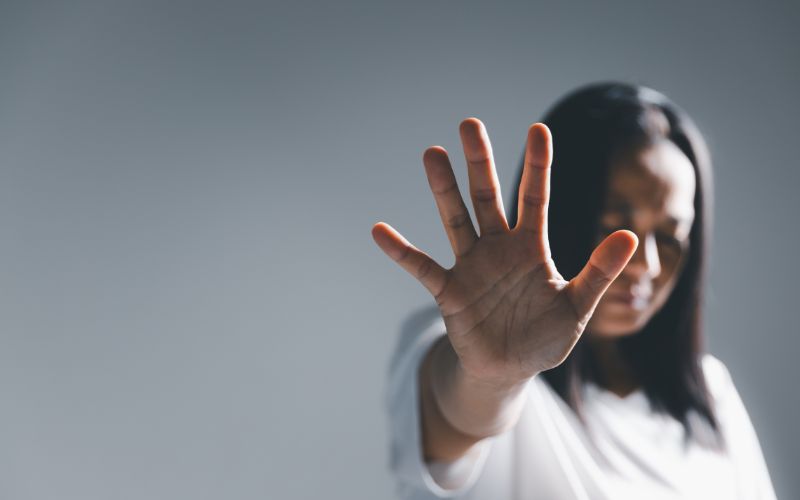
- Details
- By Kaili Berg
The Indian Health Service (IHS) recently announced the observance of January as Human Trafficking Prevention Month, where healthcare providers can connect with community partners and leaders to focus on prevention efforts and address human trafficking across Indian Country.
Indigenous people are at a higher risk of human trafficking, including both sex trafficking and labor trafficking, than other diverse populations, according to the Department of Justice.
Human trafficking is defined as the use of force, fraud, or coercion for a person to provide labor or services, or to engage in commercial sex acts. It can occur in one’s community without the individual being transported to another location, and traffickers can identify as any gender and maybe a stranger, acquaintance, partner, or family member. Individuals affected by human trafficking often do not identify as being trafficked.
In 2021, the National Human Trafficking Hotline received 10,360 reports of human trafficking situations involving 16,710 individual victims. Of these reports, 160 were listed as American Indian/Alaska Native/Indigenous American.
Many challenges, such as lack of resources, fear of reporting to law enforcement, or engaging with the criminal justice system, exist within Indian Country, and as it relates to the collection and reporting of data specific to the prevalence of human trafficking of AI/AN individuals.
Due to the immediate and long-term health effects of human trafficking, IHS views human trafficking as a healthcare issue and has established policies for providers to practice a trauma-informed, responsive workforce.
Federal and tribal partners continue to work diligently at addressing human trafficking and support strengthening prevention efforts, according to IHS. Collaborating with community partners allows for a more comprehensive, culturally responsive, and trauma-informed approach to develop a trusting relationship and meet the complex needs of individuals affected by human trafficking and other forms of violence.
If you are a victim of human trafficking or suspect you know one, please call the FBI, your local law enforcement, or the National Human Trafficking Hotline at 1- 888-373-7888. IHS has also curated a helpful list of resources within Indian Country:
- IHS Forensic Healthcare
- Nurses United Against Human Trafficking (NUAHT)
- SOAR for Indigenous Communities
- Adult Human Trafficking Screening Tool and Guide
- Sex Trafficking in Indian Country Advocacy Curriculum
- National Human Trafficking Training and Technical Assistance Center (NHTTAC)
More Stories Like This
New Mexico Will Investigate Forced Sterilization of Native American WomenUSDA Expands Aid for Lost Farming Revenue Due to 2025 Policies
Two Feathers Native American Family Services Wins 2026 Irvine Leadership Award
Bill Would Give Federal Marshals Authority to Help Tribes Find Missing Children
Indian Health Service to Phase Out Mercury-Containing Dental Amalgam by 2027


